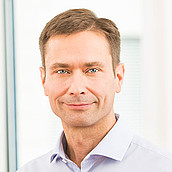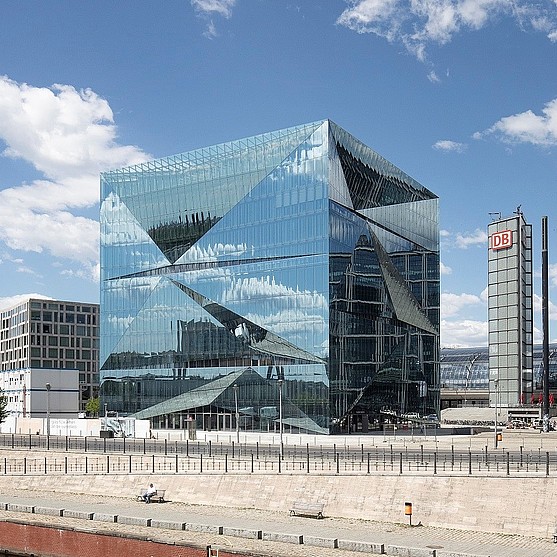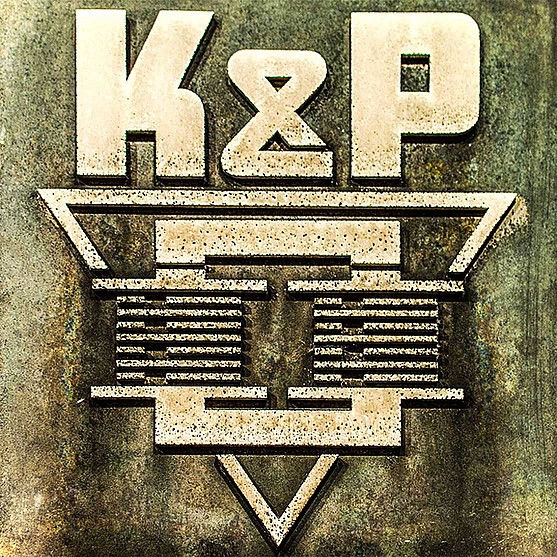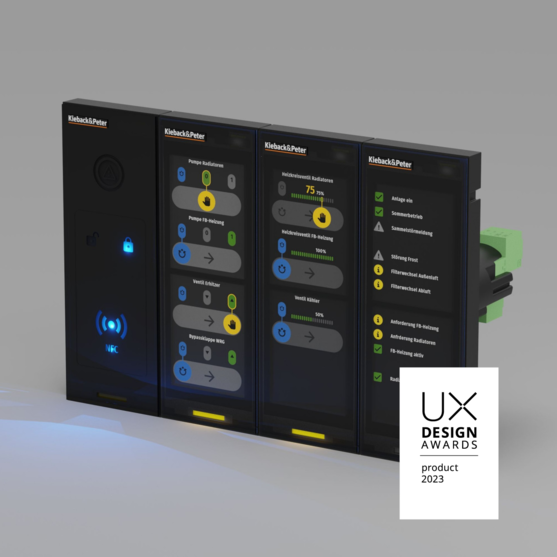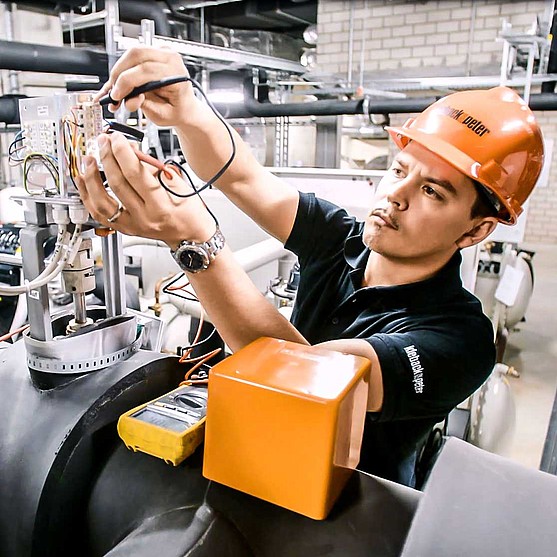Smart solutions for automated fire protection systems
Whether you’re constructing a smart new building or modernizing an existing one — every building project needs specific systems for automated smoke extraction and fire protection. A vital component of these systems is smart smoke extraction and fire damper controls from Kieback&Peter, which are seamlessly integrated into the building automation.
Thanks to their modular design, our solutions can be designed to comply with any standards and guidelines for all building sizes and plant types, including scenarios with:
- Natural smoke extraction systems
- Mechanical smoke extraction systems
- Smoke pressurization systems
- Underground parking garage ventilation and smoke extraction systems
- Ventilation systems
Modular control concept for smoke extraction and fire protection
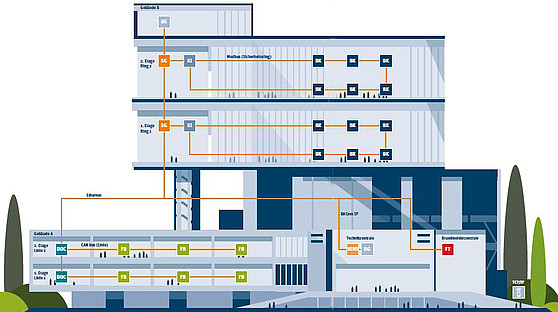
The modular concept for the smoke extraction and fire damper control solutions from Kieback&Peter can be individually adapted to all building sizes and types. They are also easily extended, consisting of compatible components such as control devices, communication interfaces and input and output modules. The solutions can communicate either through bus systems in a line topology or using innovative ring bus systems that have been specially developed for safety-relevant tasks. Both system designs ensure that data is transferred securely and that all systems required for preventive fire protection are networked efficiently. The components are networked in a safety ring bus to ensure maximum fail-safety and maintain function in the event of a fire. The control units can feature a redundant design as required.
Components checked by the system
The flexibility of the system components allows the easy adapation of the Kieback&Peter smoke extraction and fire damper control system to properties of all shapes and sizes.
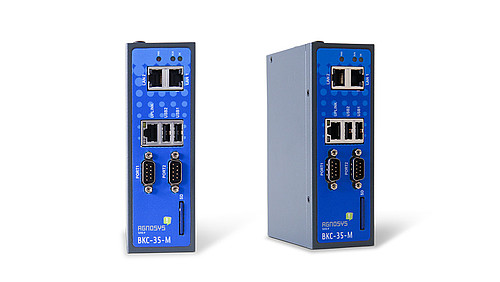
Control devices
Secure control and monitoring of smoke extraction, fire dampers, ventilators, heat extractors and garage doors.
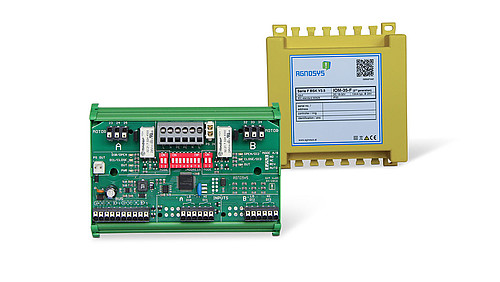
Smoke extraction and fire damper modules
Modules for the concentrated input and output of binary signals to monitor and control the fire protection damper drives.
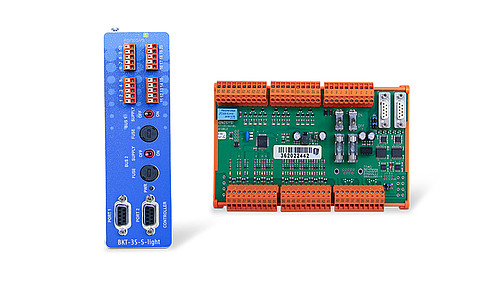
Communication interface
For the galvanic isolation of the safety ring bus from the network and other components outside the ring bus.
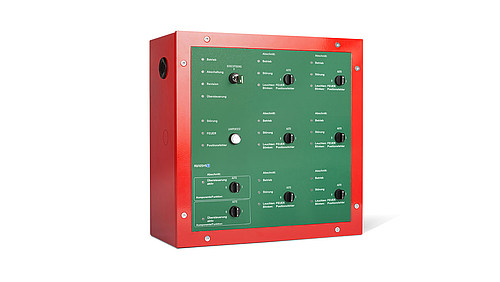
Fire service panel
Displays the status of the ventilation system in the floor plan for operation by the fire department in the event of a fire.
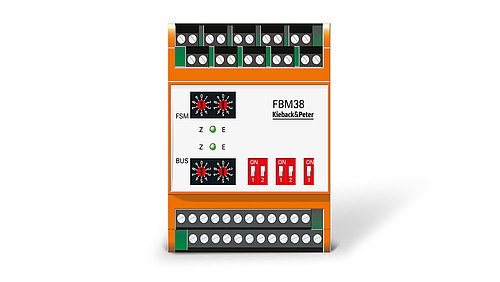
Fieldbus modules
For the concentrated input and output of binary signals to monitor and control the fire protection damper actuators.
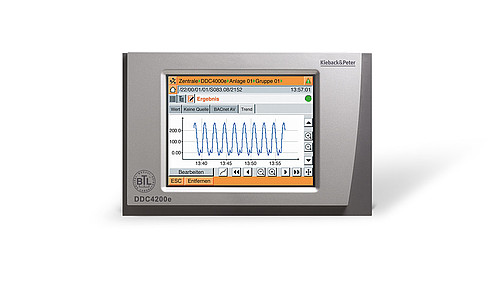
DDC automation station
Control and monitoring of smoke extraction and fire dampers, ventilators, heat extractors and garage doors.
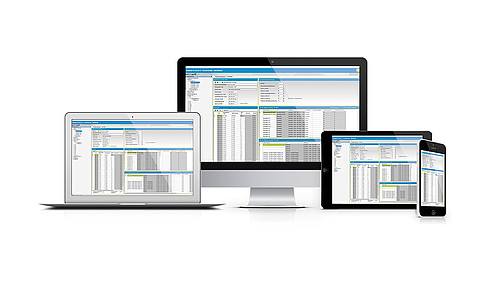
Control panels
For operating the control devices and automation system.
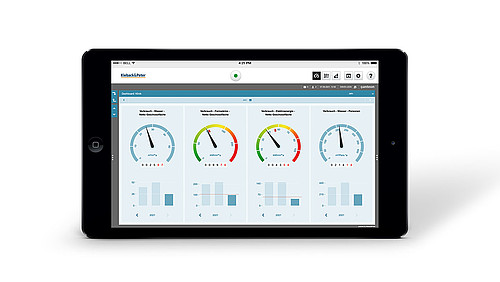
Building and energy management system (BEMS)
Ensures safe and efficient building operation.
Five good reasons to choose our fire protection solution
The international communication standard BACnet allows the simple integration of Kieback&Peter’s fire protection solution into any building management systems. All manner of automation devices can also be networked across all building services. This flexibility allows you to realize a huge variety of fire protection concepts.
Modern sustainable properties are designed to adapt to changing building operation usage requirements within their life cycle. Fire control systems and their components must be just as flexible. Kieback&Peter’s modular control solution has the flexibility to be modified and extended for numerous other uses. Thanks to its scalable components, it can also be optimally adapted to any building size, easily and economically.
Communication via a ring bus system connected to the building automation minimizes material usage, particularly for functional parts such as copper lines, terminals and distributors. This saves on installation and maintenance costs, reduces the fire load by up to 50 percent and optimizes the building’s environmental footprint due to the saved resources.
Introduce reliable planning and commissioning thanks to certified system components that conform to EN 1366-2, EN 15650 and country-specific construction regulations. The systems can be certified up to SIL3 and are approved by the TÜV or expert bodies verified by the state.
Maximize safety in an emergency with the redundant system design and fail-safe functionality, ensuring the system retains its function even if individual components fail or become faulty. Furthermore, powerful software tools assist during maintenance processes for functional and visual checks of the fire protection system. The test scenarios involved are fully automated and any errors are detected and reported to the responsible personnel.

